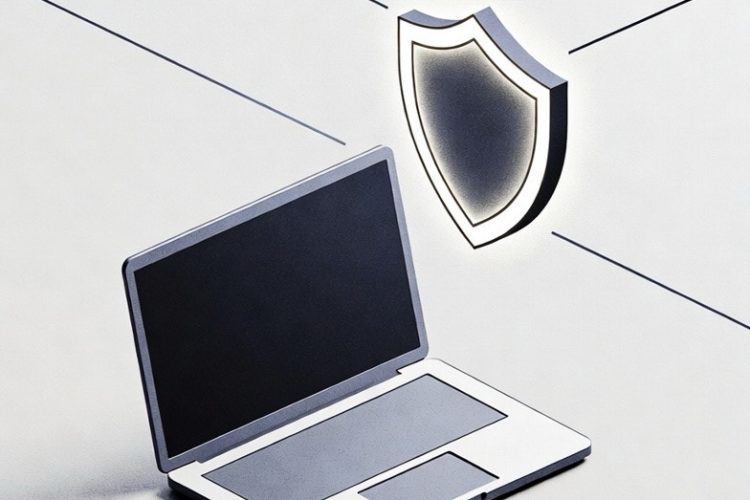A VPN (Virtual Private Network) creates a secure, encrypted tunnel between your device and the internet, hiding your real IP address and protecting your data. It uses strong AES-256 encryption and protocols like WireGuard or OpenVPN to keep your online activity private, especially on public Wi-Fi. Key benefits include online privacy, bypassing geo-blocks for streaming, avoiding ISP throttling, safe torrenting, and beating censorship. Top features to look for: no-logs policy, kill switch, DNS/IP leak protection, split tunneling, and obfuscated servers. Paid VPNs are far safer than free ones. In 2025, good choices include ExpressVPN, NordVPN, Surfshark, Mullvad, and Proton VPN. A reliable VPN gives you security, anonymity, and freedom online without slowing you down much.
Long Version
Understanding VPNs: A Comprehensive Guide to Virtual Private Networks
In today’s hyper-connected world, where online privacy and internet security are paramount, Virtual Private Networks (VPNs) have become essential tools for safeguarding digital interactions. A VPN, short for Virtual Private Network, establishes a secure connection between your device and the internet by routing your traffic through an encrypted tunnel to a remote server. This process not only hides your real IP address but also enhances data protection against potential threats like hackers or surveillance. Essentially, it transforms public networks into private ones, allowing users to browse with greater online anonymity and peace of mind.
At its core, a VPN works by encrypting your data before it leaves your device, using advanced protocols to ensure that even if intercepted, the information remains unreadable to unauthorized parties. This encryption is typically powered by standards like AES-256 encryption, often referred to as military-grade for its robustness. The VPN server then assigns you a new IP address from its pool, enabling IP address hiding and making it appear as though you’re accessing the web from a different location. This mechanism is crucial for bypassing geo-blocking, where content is restricted based on your geographic position, and for overcoming bandwidth throttling imposed by Internet Service Providers (ISPs) that might slow down your connection for certain activities.
Key Benefits of Using a VPN
The advantages of employing a VPN extend far beyond basic privacy. One of the primary benefits is enhanced online privacy, as it prevents websites, advertisers, and even governments from tracking your activities through your original IP. This leads to reduced targeted advertising and a lower risk of data breaches. In terms of internet security, VPNs provide robust data encryption, making them indispensable for public Wi-Fi protection—scenarios like airports or cafes where networks are notoriously vulnerable to eavesdropping.
Another significant perk is the ability to access restricted content, such as streaming services with region-locked libraries. By connecting to server locations in other countries, users can enjoy seamless streaming access without interruptions. VPNs also facilitate bypass censorship in regions with strict internet controls, empowering journalists, activists, and everyday users to communicate freely. For businesses, VPNs enable secure remote access, ensuring employees can connect to company networks without compromising sensitive information.
On the anonymity front, VPNs promote online anonymity by masking your digital footprint, which is particularly valuable for activities like torrenting or P2P support, where file sharing could otherwise expose your identity. Economically, they can lead to cost savings by allowing users to shop or book travel from “virtual” locations with better deals. Overall, these features contribute to comprehensive digital privacy and data protection in an era of increasing cyber threats.
Diverse Uses of VPNs in Everyday Life
VPNs are versatile, serving a wide array of purposes across personal and professional spheres. For travelers, they offer a lifeline by providing secure connections to home-based services while abroad, mitigating risks on unfamiliar networks. Remote workers rely on them to maintain a secure connection to corporate resources, often through site-to-site configurations that link entire offices.
In entertainment, VPNs are popular for gaming and streaming, where they can reduce latency by optimizing routes or unlock global content libraries. They support anonymous browsing for research or sensitive topics, and in high-censorship environments, they allow users to evade restrictions imposed by entities like the Great Firewall.
For more specialized applications, VPNs facilitate P2P support and torrenting by shielding users from ISP monitoring, while businesses use them for branch-to-branch connectivity without routing everything through headquarters. Even in education or activism, they ensure safe communication, highlighting their role as a cornerstone of modern internet usage.
Delving into VPN Security Features
Security is the bedrock of any reliable VPN. Central to this is data encryption, where protocols like the OpenVPN protocol or the faster, more modern WireGuard scramble your information using AES-256 encryption to prevent unauthorized access. These tunneling protocols define how data travels securely, with options like IKEv2 ideal for mobile devices due to its stability during network switches.
Advanced safeguards include a kill switch, which automatically disconnects your internet if the VPN fails, preventing accidental exposure. DNS leak protection and IP leak prevention ensure your real details don’t slip through, while split tunneling allows selective routing—sending only specific traffic through the VPN for efficiency.
Reputable providers adhere to a no-logs policy, meaning they don’t record your activities, often verified through independent audit reports. Features like double VPN (routing through two servers for extra encryption) or Onion over VPN (integrating with the Tor network) add layers of protection. Obfuscated servers disguise VPN traffic as regular internet activity, useful in restrictive regimes.
Jurisdiction matters too; providers outside alliances like the Five Eyes alliance may offer better privacy due to less stringent data-sharing requirements. Innovations such as zero-knowledge proof, RAM-only servers (which don’t store data persistently), and warrant canary (signals of government subpoenas) further bolster trust.
How to Choose the Right VPN
Selecting a VPN involves evaluating factors like server locations for optimal performance, support for multiple devices, and proven security features. Prioritize providers with transparent no-logs policies and recent audit reports. Consider free versus paid options—while free VPNs exist, they often compromise on speed, security, or privacy by selling data. Top recommendations for 2025 include services like ExpressVPN, NordVPN, and Surfshark, known for their balance of speed, features, and user-friendly interfaces. Emerging options like Mullvad emphasize privacy with anonymous payment methods, while Proton VPN stands out for its open-source approach and integration with other privacy tools.
Be mindful of potential drawbacks: VPNs can slightly reduce speeds due to encryption overhead, and not all are equal in reliability. Always verify compatibility with your needs, such as mobile VPNs for on-the-go use. Additionally, look for providers that offer multi-hop connections for added security or dedicated IP addresses for consistent access to certain services.
Emerging Trends in VPN Technology for 2025 and Beyond
In late 2025, VPN adoption continues to show dynamic shifts: U.S. usage has seen significant growth, with surges attributed to heightened privacy concerns amid data breaches and regulatory changes, though overall consumer adoption has stabilized around 35-40% as awareness plateaus. Business adoption has rebounded slightly, focusing on hybrid work models that demand secure remote access.
Globally, demand remains strong in censored regions, with countries like China and Russia driving innovation in circumvention tools. Technological advancements include deeper integration with 5G and emerging 6G networks for faster, low-latency connections, AI-driven threat detection to proactively block risks, and quantum-resistant encryption algorithms to future-proof against advanced computing threats. Decentralized VPNs, leveraging blockchain for peer-to-peer networks, are gaining popularity for enhanced trust and resistance to centralized failures.
Other developments encompass multi-factor authentication (MFA) enhancements, biometric logins for seamless user experience, and hybrid cloud support for enterprise scalability. Protocols like Shadowsocks and newer variants are evolving to better evade detection in restrictive environments. The rise of zero-trust architecture is complementing rather than replacing VPNs, with many organizations layering them for comprehensive risk mitigation.
Looking ahead to 2035, anticipate widespread AI integration for adaptive security, fully decentralized ecosystems reducing single points of failure, and regulatory frameworks that standardize privacy protections across borders. Sustainability is also emerging as a focus, with providers optimizing server efficiency to reduce environmental impact.
Final Thoughts on VPNs
VPNs represent a powerful ally in the quest for secure, private online experiences. By leveraging features from basic data encryption to advanced obfuscated servers, they address a spectrum of needs—from everyday browsing to high-stakes activism. As threats evolve, staying informed about trends like quantum-resistant tech ensures you’re equipped for the future. Ultimately, investing in a trustworthy VPN fosters not just security, but empowerment in the digital age.







